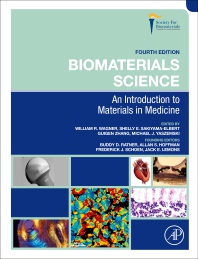
Guigen Zhang, Ph.D.
AIMBE College of Fellows Class of 2014 For outstanding contributions to the utilization of the interfacial phenomenon of electrical double layers for direct molecular interfacing and discrimination
Guigen Zhang Elected Society for Biomaterials President for 2021-2022 Term
Via University of Kentucky | July 16, 2020Guigen Zhang, Chair of the Joseph Halcomb III, M.D. Department of Biomedical Engineering (BME) and Halcomb Endowed Chair Guigen, has been elected president of the Society for Biomaterials for the 2021-2022 term. The election results were announced at the 2020 Society for Biomaterials Business Meeting held virtually on July 15.
The Society for Biomaterials, known as the SFB to its members, is a multidisciplinary organization comprising academic, health care, governmental and business professionals dedicated to promoting advancements in all aspects of biomaterial science, education and professional standards to enhance human health and quality of life. Established in 1974, it is the oldest scientific organization in the field of biomaterials… Continue reading.
Biomaterials Science, 4th Edition
Via Society For Biomaterials | March 1, 2020- William Wagner, PhD
- Shelly Sakiyama-Elbert, PhD
- Guigen Zhang, PhD
- Michael J. Yaszemski, MD, PhD
Founding Editors:
- Buddy Ratner, PhD
- Allan Hoffman, ScD
- Frederick Schoen, MD, PhD
- Jack Lemons, PhD
Description
Biomaterials Science: An Introduction to Materials in Medicine, Fourth Edition, is the most comprehensive text on biomaterials science, from principles to applications. It provides a balanced, insightful approach to both the learning of the science and technology of biomaterials, acting as a key reference for practitioners involved in the applications of materials in medicine. In this new edition, there are key updates to reflect the latest relevant research in the field, particularly in applications in nanotechnology, robotic implantation, and biomaterials utilized in cancer research detection and therapy. Other additions include regenerative engineering, 3D printing, personalized medicine and organs on a chip.
Based on customer feedback, the new edition also features a consolidation of redundant material to ensure clarity and focus. Where appropriate, end-of-chapter exercises have been included with online solutions available… Learn more.
Guigen Zhang Begins Term as President of the Institute of Biological Engineering
Via Clemson | January 12, 2017On January 1, 2017, Guigen Zhang, Professor and Associate Chair for Program Development and Outreach, Department of Bioengineering; and Executive Director, Institute of Biological Interfaces of Engineering, began his term as president of the Institute of Biological Engineering. Here, Zhang shares his vision on the possibility of a biological revolution and his belief in solving worldwide problems through convergence. IBE, a professional society, was started in 1995.
Clemson University Spinoff Company to Commercialize Advanced Genetic Technology
Via Clemson University Newsstand | July 10, 2012A new company emerging from Clemson University research aims to commercialize innovative genetic sensing technology, according to the university Research Foundation.
Tiger Bioanalytics, led by Guigen Zhang of Clemson University, is developing a cost-effective way to more accurately conduct gene sequencing. The goal is to sequence a whole genome using DNA from a single cell in a short period of time with high accuracy at a low cost. Tiger Bioanalytics’s technology promises a more accurate and affordable approach.
Clemson Professor Receives $100,000 Gates Grant for Diagnostics Research
Via Clemson University Newsstand | May 11, 2010Guigen Zhang, a Clemson University professor in both bioengineering and electrical and computer engineering, has received a $100,000 Grand Challenges Explorations grant from the Bill & Melinda Gates Foundation.
Awarded through a program to support innovative global health research, the grant will help fund Zhang’s work to create low-cost diagnostic tools for doctors in developing countries.
“Our work is designed to develop highly sensitive, specific and direct-molecule-interfacing biosensors that are inexpensive to build, simple to use and rugged to deploy,” Zhang said.
Inexpensive, simple and rugged medical tools are important in remote, underdeveloped areas. That’s the reason Zhang’s research turned to development of tiny “biosensors” to replace more expensive and delicate mechanical and electrical devices.
Zhang, who also is deputy director of Clemson’s Institute for Biological Interfaces of Engineering, conducts research on the “electrical double layer,” a natural phenomenon that scientists have long recognized, but only recently begun to explore for its engineering potential. Zhang intends to take advantage of “nanostructures” — tiny objects roughly on the scale of atoms and molecules — to help doctors diagnose disease.
“We seek to exploit the fundamental science behind the capacitive effect of the electrical double layer as an analytical principle,” Zhang said. “This is very much on the frontiers of basic science and medical diagnostic engineering, but the result could be extremely beneficial for physicians in the field and the people in regions with limited resources.
 AIMBE
AIMBE

